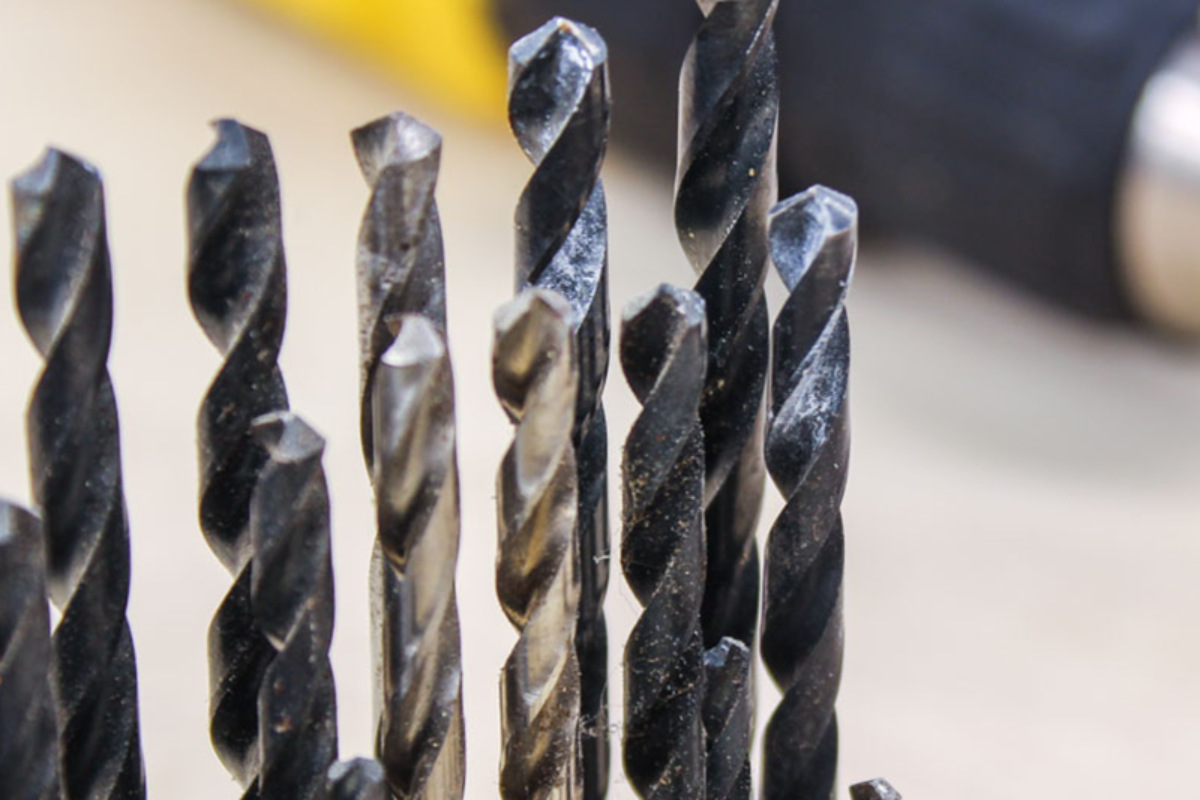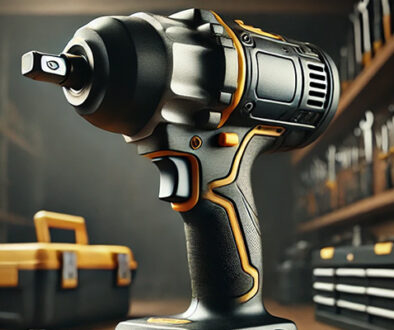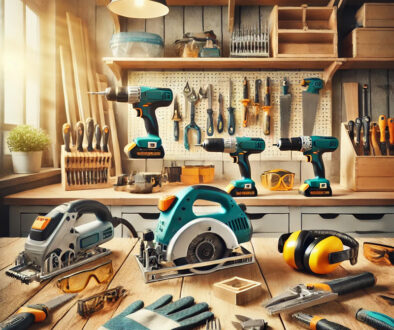Drill Bits
Drill bits are essential tools specifically designed for creating holes in various materials like wood, metal, plastic, and masonry. Moreover, they come in numerous shapes and sizes, each tailored for specific tasks and materials.
Components and Design
A typical drill bit consists of:
- Shank: The part that fits into the drill’s chuck. It can be round or hexagonal for better grip.
- Body: The main part of the bit that includes the cutting edges.
- Flutes: Spiral grooves that remove debris from the hole and allow coolant to reach the cutting edges.
- Tip: The pointed end that initiates the cutting process.
Types of Drill Bits
-
Twist Bits: The most common type, suitable for general-purpose drilling in wood, metal, and plastic. They come in a variety of sizes and lengths.
-
Spade Bits: Ideal for fast, rough holes in wood. They have a flat body with a sharp, pointed tip.
-
Masonry Bits: Designed for concrete, brick, and stone. They often have a carbide tip to withstand hard surfaces.
-
Forstner Bits: Used for drilling precise, flat-bottomed holes in wood. Excellent for cabinetry and furniture making.
-
Auger Bits: Feature a spiral design and are used for deep holes in wood, offering efficient chip removal.
-
Brad Point Bits: Perfect for woodworking, they have a pointed tip that prevents slipping and ensures accurate starts.
-
Hole Saws: Used to cut large-diameter holes in wood, metal, and other materials. They consist of a circular saw blade with a drill bit at the center.
Applications
Drill bits are used in various fields, each requiring specific types for optimal results:
- Woodworking: Twist, spade, brad point, and Forstner bits are commonly used for creating precise holes.
- Metalworking: High-speed steel (HSS) twist bits are typically used, sometimes coated with titanium or cobalt for enhanced durability.
- Masonry: Specialized masonry bits are essential for drilling into concrete or stone.
- Plumbing and Electrical: Hole saws and auger bits are used for larger openings to accommodate pipes and cables.
Material Considerations
Drill bits are made from different materials, each offering distinct advantages:
- High-Speed Steel (HSS): Durable and versatile, suitable for general-purpose drilling.
- Cobalt: Resistant to heat, ideal for drilling hard metals.
- Carbide: Extremely hard and wear-resistant, perfect for masonry and tough materials.
- Black Oxide: Coated for corrosion resistance and increased lifespan.
Maintenance and Safety
To ensure longevity and safety:
- Sharpen Regularly: Dull bits can lead to overheating and poor performance.
- Use Correct Speed: Match the drill speed to the material and bit type.
- Secure the Workpiece: Prevent movement during drilling to avoid accidents.
- Wear Protective Gear: Use safety goggles and gloves to protect against flying debris.
Conclusion
Drill bits are fundamental components in construction, manufacturing, and DIY projects. Therefore, understanding the different types and their specific uses is crucial for achieving clean, accurate holes and maintaining efficiency. Furthermore, with the right bit, any drilling task can be performed effectively and safely, making them indispensable in any toolkit.







